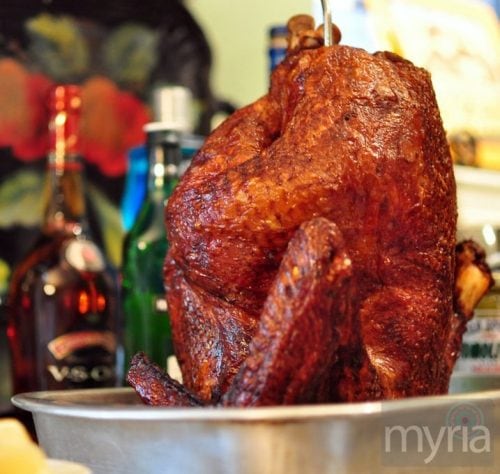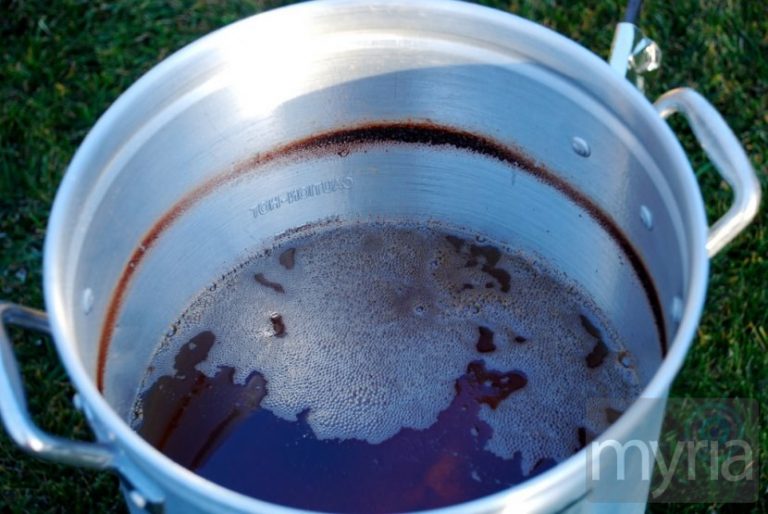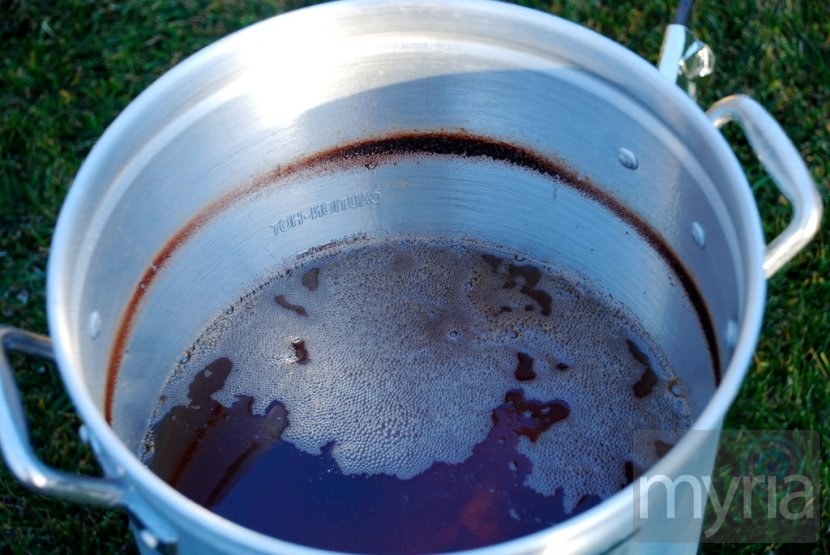If you’re planning to deep-fry your turkey for Thanksgiving or Christmas, you may wonder: Can you reuse the oil used to fry a turkey?
The good news is that yes, you can — and you will probably want to! As many people have discovered, the oil needed to deep fry a turkey can cost about as much as the turkey itself, so it makes sense to recycle.
Starting fresh
First, though, it is important to buy your oil with re-use in mind.
According to the The National Turkey Federation, for deep-frying, you should choose an oil with a “high smoke point” — that is, oil that can be heated to a high temperature before smoking.
Three oils that fit the bill are peanut oil, sunflower oil and canola oil. From what we have heard, peanut oil is pretty consistently the oil of choice because of the flavor it imparts. It is, however, one of the more expensive options, and you will also need to make sure that none of your guests have peanut allergies.
>> The best way to deep fry turkey
Clean, store and used reuse turkey fryer oil

After you have used the oil, allow it to cool. You will then need to strain and filter it. Pour it through a fine mesh strainer to remove the larger particles, and then filter it through cheesecloth or a coffee filter. Filtration is especially important if you have used a rub, breading or seasonings on the turkey you fried.
When the oil has completely cooled and has been cleaned, you may pour it into an appropriate container (or containers), seal it in a light-proof container, and store it in the refrigerator for a few months.
While some sources say only that used oil must be stored in a cool, dark place — and not necessarily refrigerated — peanut oil is more perishable than other oils and needs to be stored in the refrigerator if kept longer than one month — but it’s also one kind of oil that freezes well.
The oil should last through frying 2 or 3 more turkeys. (Repeat the cleaning and storing process each time.) Some people have a turkey fry on Thanksgiving, one for Christmas, and another to ring in the new year — a smart way to use your oil over just a few months.
For a great tutorial on getting the most out of your used oil, check out the article Getting Fried on Thanksgiving: What Nobody Ever Tells You on Gastronomer.org.
About refrigerated/frozen oil
The oil will thicken when it is chilled, but will return to its original consistency when reheated. Oil will also look cloudy — and that cloudiness may even remain when it’s brought back to room temperature, and will only clear up temporarily when heated.
When & how to get rid of old turkey fryer oil
Don’t store oil that has been heated to the smoking point, has turned dark or has an off-odor. During storage and before using it again, make sure to check for signs that the oil is becoming old or rancid: it may look dark, start to foam, will smoke more than usual, won’t bubble when you add food, or may have a rancid smell. This means it’s time to discard the oil and to start all over again!
Do not pour oil down the sink. Oil will cool with water in the drain and congeal, causing backups in your sink and plumbing — or the septic system or public sewer system. These jams can be expensive to clear out, and are definitely unpleasant to deal with. There are also environmental factors to consider. Oil can spread very thinly across water over a very large area changing the chemistry and health of the ecosystem, so it’s especially important not to dispose of any oil near lakes, streams or watersheds.
The good news is that used cooking oil can be recycled in many areas. Find out where you can recycle your used oil here or here (type in “cooking oil”), so it can be used to make biodiesel fuel or soap. If recycling is not an option, the safest way to dispose of your leftover grease is by pouring the cooled oil into containers that can be sealed (such as coffee cans or gallon milk jugs) and then putting the oil-filled containers in the trash.









